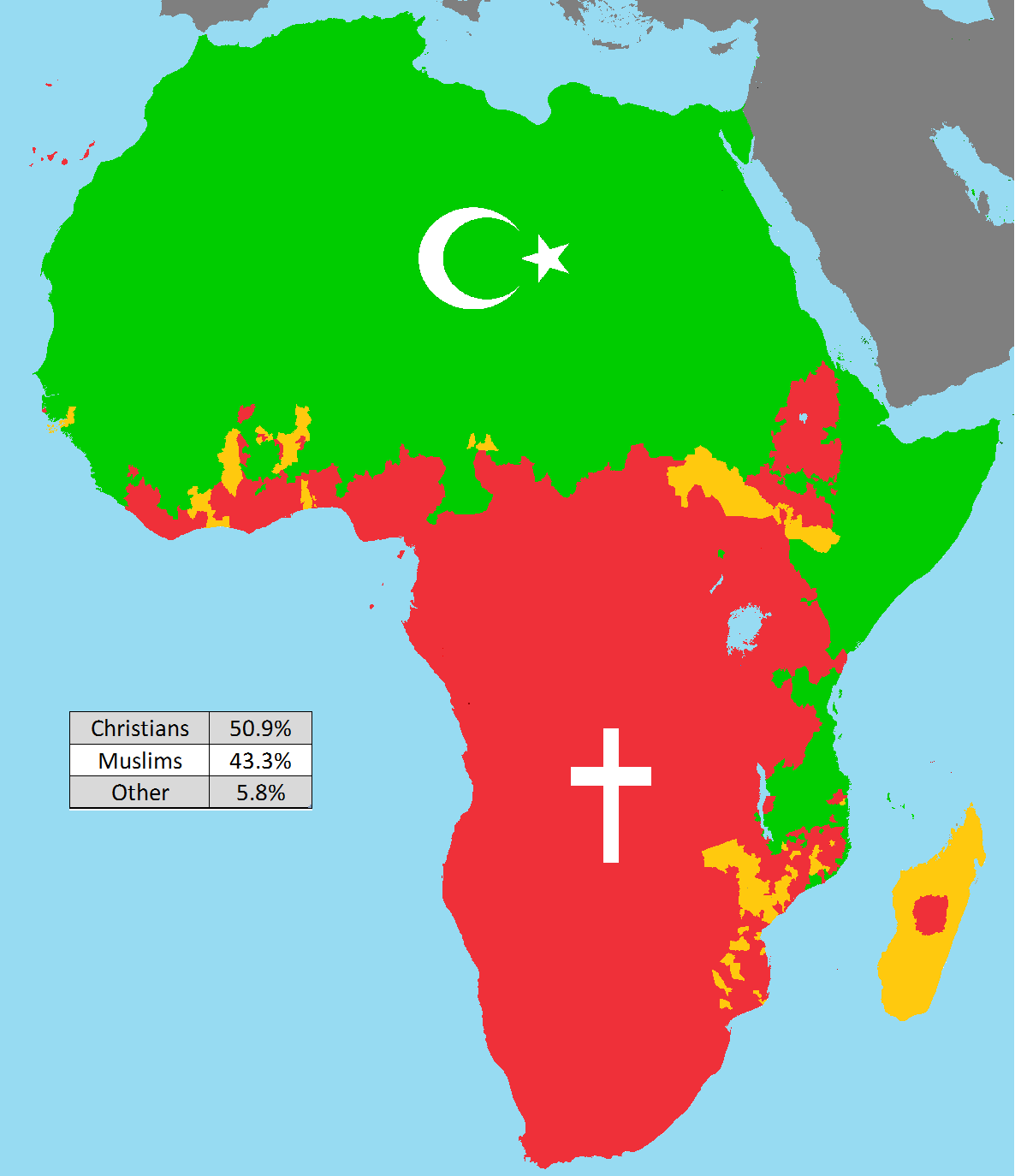Muhammad, the Prophet of Islam “Peace Be Upon Him”, died in 632 the new religion had already gathered a number of impressive victories on the battlefield. The armies of Islam quickly and easily conquered the Arabian peninsula before moving on to take the homelands of their various neighbours. Marching out of Arabia in 639 they entered non-Arab Egypt; 43 years later they reached the shores of the Atlantic; and in 711 they invaded Spain. In just 70 years they had subdued the whole of North Africa, instituting a new order. This conquest, from the Nile to the Atlantic, was more complete than anything achieved by previous invaders , 1000 C.E. Islam continued to spread through the continent of Africa, including Nigeria, which served as a trading liaison between the northern and central regions of Africa.
several Years later after Arab occupation in north Africa, Europe imperial powers set their voyage to a new geographic regions to expand their spheres of influence in the 19th century, Africa emerged as a prime location for colonization due to its wealth of natural resources and purportedly undeveloped economies ripe for exploitation. In reality, European colonization devastated traditional African societies and economies. However, the leaders spearheading the movement cited the “white man’s burden,” a term popularized in Rudyard Kipling’s poem to morally justify imperialist expansion. The philosophy underpinning the “White Man’s Burden” consisted of the “Three C’s of Colonialism: Civilization, Christianity, and Commerce.”
The idea of the White Man’s Burden was to better (“seek another’s profit”) on backward people (anyone who was not white). The lines following this initial declaration reveal the prevailing attitude in regards to how such a civilizing mission would proceed.
Missionaries saw the voyages to Africa by their governments as an opportunity for them to spread the teaching of the Christian faith. Missionaries came with the attitude that all things European were superior to all things African. Most missionaries like David Livingstone and Fabri of the German Missionary Society in Namibia believed that once Africans were colonized by European countries they would be more likely to seek after Western Education and Christianity which the missionaries controlled. It was their mission to do anything necessary to convert Africans who were viewed as uncivilized and barbaric. Missionaries often failed to distinguish between Christian principles and those of the colonialists. They misused biblical passages to further the causes of their colonial friends.They used some of the British Empire’s resources and then in turn the empire coerced them to use their teaching to subdue the AfricansEven though the Christianity arrived in Africa earlier than Islam, with traditions pointing to the 4th century for its introduction, As the imperial powers of Europe set their sights on new geographic regions to expand their spheres of influence in the 19th century, Africa emerged as a prime location for colonization due to its wealth of natural resources and purportedly undeveloped economies ripe for exploitation. In reality, European colonization devastated traditional African societies and economies.
Civilization:
In 1884, the Berlin Conference marked the official beginning of colonialism in Africa. One of the justifying principles behind colonialism was the need to civilize the purportedly backward peoples of Africa.
Christianity:
Christianity was one justification that European powers used to colonize and exploit Africa. Through the dissemination of Christian doctrine, European nations such as Great Britain, France, and the Netherlands sought to educate and reform African culture.
Commerce:
While European powers justified colonialism in Africa as a moral obligation to bestow modern civilization and Christianity on African societies, the potential for commerce and natural resources provided the true energy for the colonization of Africa. Following the abolition of the British slave trade in 1807 and the decline of trade with the United States in the mid-1800s for the same reason, Africa represented to Europe a recently legitimised and untapped region for economic expansion.
Article 1
By: Adolph Muhumuza, Author, Researcher, Fact-checker

